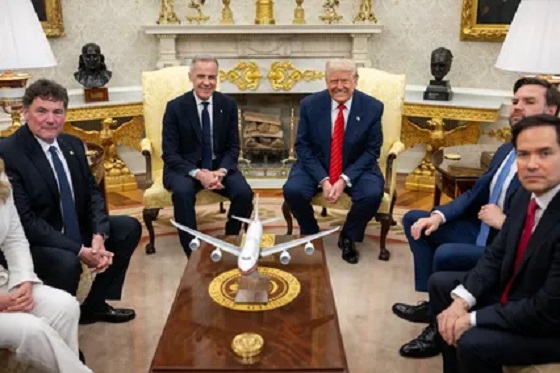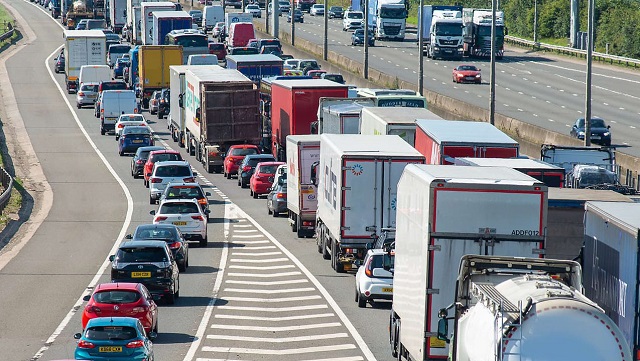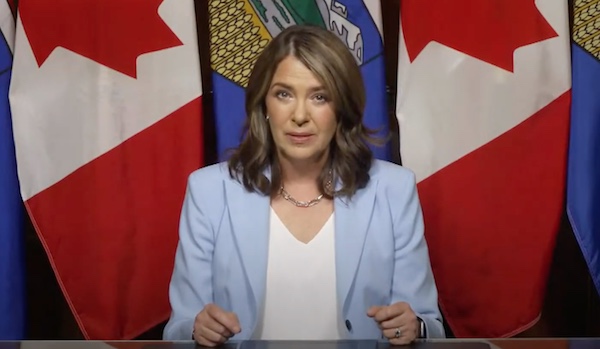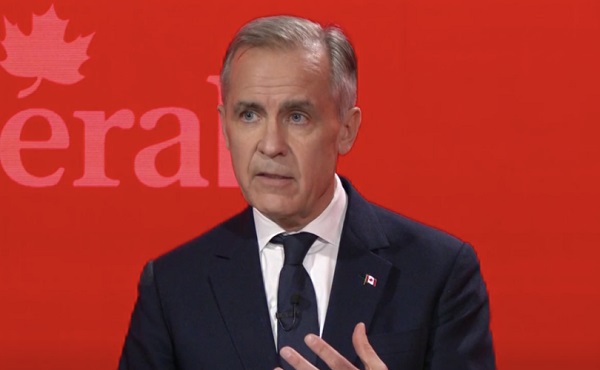Opinion
Misleading polls may produce more damaging federal policies

From the Fraser Institute
By Jason Clemens and Jake Fuss
72 per cent of respondents in Canada supported a new narrowly-targeted tax on wealth for the top 1 per cent to pay for new government services and/or a guaranteed annual income. But support dropped to only 16 per cent when the plan relied on increasing the GST to 20 per cent. The implications of the data are clear—Canadians support new and expanded programs when they believe someone else will pay for them.
In the wake of the 2024 federal budget, several public opinion polls have been released with potential implications for the future direction of federal policy. But unless the polls are interpreted correctly, the results could be misconstrued and lead to further damaging federal policies.
Most polls continue to show the federal Opposition significantly outperforming the governing Liberals and their partners in government, the NDP. Moreover, polls completed after the Trudeau government released the federal budget earlier this month indicate Canadians generally do not agree with the overall policy direction of the Trudeau government.
For example, according to a recent Leger poll, 56 per cent of Canadians believe the country is “headed in the wrong direction,” 59 per cent “perceive the economy as weaker,” only 19 per cent agree the government’s strategy “will benefit their personal finances,” and only 33 per cent believe the government is “taking positive steps to grow the Canadian economy.”
These results align with a recent Angus Reid poll, which found that 59 per cent of respondents think federal spending had grown too large and spending cuts were needed.
A number of pollsters, however, have noted the gulf between the overall lack of support for federal policies (including the recent budget) and strong support for individual initiatives in the budget. According to the Leger poll, for instance, 73 per cent of respondents support the new $6 billion Canada Housing Infrastructure Fund, 71 per cent support the new National School Food Program, and 67 per cent support the new $15 billion Apartment Construction Loan Program.
But these results are misleading because they only reflect one side of the question—the benefits. In other words, the polls ask respondents if they support specific programs but exclude any costs. When Canadians understand the costs, their attitudes change. They’re concerned about the level of federal spending because they see the costs—rising taxes, mounting debt and increasing interest costs.
Not surprisingly, when pollsters connect new or expanded programs with their costs, support for those programs declines. Consider a 2022 Leger poll that asked respondents about their support for pharmacare, dental care and the federal $10-a-day daycare program.
Support for the three programs is strong when no costs are attached: 79 per cent for pharmacare, 72 per cent for dental care and 69 per cent for daycare. But the level of support plummets when an increase in the GST is attached to the new program. Support for pharmacare drops to 40 per cent, support for dental care drops to 42 per cent, and daycare support drops to 36 per cent.
This general idea of supporting programs—when someone else pays for them—aligns with a 2022 poll, which found that 72 per cent of respondents in Canada supported a new narrowly-targeted tax on wealth for the top 1 per cent to pay for new government services and/or a guaranteed annual income. But support dropped to only 16 per cent when the plan relied on increasing the GST to 20 per cent. The implications of the data are clear—Canadians support new and expanded programs when they believe someone else will pay for them.
This is an important consideration because the Trudeau government has borrowed to pay for most of its new and expanded programs, meaning that the effect of the new spending would be more apparent if the government raised taxes—rather than borrowed—to pay for it. The costs of the government’s approach, however, are showing up in Ottawa’s debt interest costs, which this year will reach a projected $54.1 billion—more than the federal government spends on health-care transfers to the provinces.
As Nobel laureate Milton Friedman said, there’s no such thing as a free lunch. When polling data treat new and expanded programs as costless, they provide misleading results and policy signals to politicians. It’s essential that policymakers understand the degree to which Canadians—after they understand the costs—actually support these initiatives.
Authors:
Business
After successful anti-American election campaign, Carney pivots to embrace US: Hails Trump as a “transformational president”

 MxM News
MxM News
Quick Hit:
Canadian Prime Minister Mark Carney met with President Donald Trump at the White House on Tuesday and praised the American leader as a “transformational president” with a relentless focus on workers, border security, and combatting fentanyl.
Key Details:
-
In front of reporters in the Oval Office, Carney said Trump was “focused on the economy, with a relentless focus on the American worker, securing your borders… ending the scourge of fentanyl and other opioids, and securing the world.”
-
The newly elected Canadian leader said he intends to implement a similar agenda in Canada, including heightened attention to border security, defense, and Arctic development.
-
Despite past trade friction between the two countries, Carney voiced confidence in the future of U.S.-Canada relations, stating, “We’re stronger when we work together… I look forward to addressing some of those issues that we have.”
Diving Deeper:
Canadian Prime Minister Mark Carney offered striking praise for President Donald Trump during a Tuesday visit to the White House, calling him a “transformational president” who has reshaped the global conversation on the economy, national security, and public health. Speaking alongside Trump in the Oval Office, Carney lauded the president’s focus on protecting American workers, confronting the fentanyl crisis, and reinforcing the nation’s borders.
“You’re a transformational president, focused on the economy, with a relentless focus on the American worker, securing your borders… ending the scourge of fentanyl and other opioids, and securing the world,” Carney told Trump.
According to Carney, many of the issues central to Trump’s presidency were also top concerns for Canadian voters. “I’ve been elected… with the help of my colleagues here, I’m going to spread the credit, to transform Canada with a similar focus on the economy, securing our borders, again, on fentanyl, much greater focus on defense and security, securing the Arctic and developing the Arctic,” he said.
Though the two leaders were cordial, the backdrop of their meeting carried a history of trade disputes. Early in Trump’s second term, his administration imposed tariffs on Canadian goods—a move that prompted retaliatory measures from then-Prime Minister Justin Trudeau. Still, Carney emphasized cooperation and struck a hopeful tone, noting that the U.S.-Canada relationship has endured challenges before.
“The history of Canada and the U.S. is we’re stronger when we work together, and there’s many opportunities to work together,” Carney said. “I look forward to addressing some of those issues that we have, but also finding those areas of mutual cooperation so we can go forward.”
President Trump, for his part, congratulated Carney on his election and offered warm words of welcome. “I want to just congratulate you. That was a great election, actually,” Trump said. “We were watching it with interest, and I think Canada chose a very talented person, a very good person… it’s an honor to have you at the White House and the Oval Office.”
The meeting marked Carney’s first official trip to Washington since taking office and served as an early sign that the two North American leaders may chart a path of renewed collaboration—grounded in shared priorities of national strength and economic growth.
Daily Caller
Misguided Climate Policies Create ‘Real Energy Emergency’ And Permit China To Dominate US


From the Daily Caller News Foundation
By Mariane Angela
Interior Secretary Doug Burgum warned on Fox Business Tuesday about America’s deepening energy shortfall and said that misguided climate policies could give China the upper hand in both the global energy race and artificial intelligence development.
House lawmakers voted 246-164, with support from 35 Democrats, to overturn a Biden-era EPA rule that lets California enforce a de facto national ban on gas-powered cars by 2035. During an appearance on “Kudlow,” Burgum said that U.S. energy shortfalls could allow China to outpace America in artificial intelligence and other power-hungry technologies.
“The real energy emergency that we have right now is that we don’t have enough energy in this country. We’re losing the AI arms race to China, and we’ve got to have more energy and more power right now in the country. And so that’s one of the things that we’re focused on right now,” Burgum told host Larry Kudlow.
Burgum blasted California’s aggressive emissions standards, which he said have effectively become national policy.
WATCH:
“Let’s start with California, Larry. That would be a great idea, because there’s 14 other states that followed California. So basically we’re stuck right now. Automakers feel like they’ve got to build two kinds of cars in America, one for California standards and one for the rest of the country,” Burgum said. “Of course, we know that the California standards are based on a bunch of falsehoods around emissions, because if we want zero carbon fuels, it’s much cheaper.”
Burgum took particular aim at electric vehicle subsidies, calling them a boondoggle built on climate ideology. He also called electric vehicle subsidies economically reckless since the cost of avoiding a single ton of carbon dioxide exceeds $900.
“It’s 10 to 15 times cheaper to have zero carbon liquid fuels than it is to subsidize EVs. The EV subsidies, where the real bank was, the thing that was really breaking the bank, over $900 for an avoided tonus of CO2, and all of that built around climate ideology,” Burgum said.
Republican Pennsylvania Rep. John Joyce introduced a resolution under the Congressional Review Act to stop California’s zero-emission vehicle mandate, which several other states have adopted. If the Senate doesn’t act, the Environmental Protection Agency would face a lengthy rulemaking process to reverse the policy that will allow California’s stricter standards to remain in effect for years.
The states that have opted in to California’s auto rules include Colorado, Delaware, Maryland, Massachusetts, New Jersey, New Mexico, New York, Oregon, Rhode Island, Vermont, Washington, and the District of Columbia.
-

 COVID-192 days ago
COVID-192 days agoUS Government ADMITS It Approved Pfizer’s COVID “Vaccine” Despite Knowing About a Long List of Trial Violations
-

 Alberta1 day ago
Alberta1 day agoPremier Smith seeks Alberta Accord: Announces new relationship with Ottawa
-

 Business2 days ago
Business2 days ago‘Got To Go’: Department Of Energy To Cut Off Billions Of Dollars’ Worth Of Biden-Era Green Energy Projects
-

 Artificial Intelligence2 days ago
Artificial Intelligence2 days agoThe Responsible Lie: How AI Sells Conviction Without Truth
-

 Energy2 days ago
Energy2 days agoIs the Carney Government Prepared to Negotiate a Fair Deal for the Oil, Gas and Pipeline Sectors
-

 Alberta1 day ago
Alberta1 day agoSaudi oil pivot could shake global markets and hit Alberta hard
-

 International2 days ago
International2 days agoWhite smoke vs. black smoke: How do we know when we have a new pope?
-

 Agriculture1 day ago
Agriculture1 day agoCanada is missing out on the global milk boom






